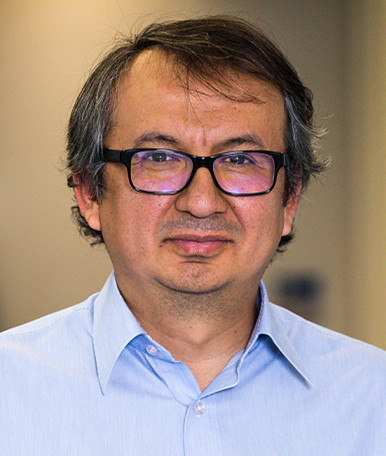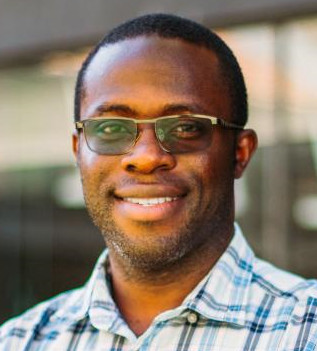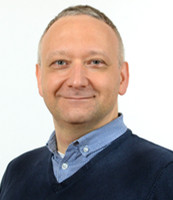Keynote Speakers

|
Marcos J. Rider, University of Campinas (UNICAMP), Campinas, Brazil
IEEE Senior Member |
||
He received B.Sc. (Hons.) and P.E. degrees from the National University of Engineering, Lima, Perú, in 1999 and 2000, respectively, and an M.Sc. degree from the Federal University of Maranhão, Maranhão, Brazil in 2002; he earned a Ph.D. degree from the University of Campinas (UNICAMP), Campinas, Brazil in 2006 - all in electrical engineering. He worked as a Researcher Associate and Visiting Professor at UNICAMP (2006-2007; 2008-2010), Universitat Politècnica de Catalunya, Barcelona, Spain (2007-2008), Ryerson University, Toronto, Canada (2019) and Toronto Metropolitan University, Toronto, Canada (2025-2026). He was a Professor at Paulista State University in the Campus of Ilha Solteira (2010-2015). Currently, he is an Associate Professor in the Department of Systems and Energy at UNICAMP, researcher 1C of CNPq and IEEE Senior member. Participated as principal investigator or collaborator in more than 30 R&D projects for Brazilian utilities and govern agencies. He has published 6 books chapters, over 180 full papers in scientific events, and over 110 journal papers in scientific journals, most of which have been published in international journals indexed by ISI, which are classified as Qualis A1 by CAPES. The ISI Web of Science database lists more than 4600 citations to his articles (H index = 41), Scopus lists more than 6100 citations (H index = 45), and Google Scholar lists 9400 citations (H index = 53). He has taught in more than 20 different disciplines at the undergraduate and graduate levels, some disciplines at the graduate level are unpublished, and he aims to present the research conducted, contributing to the creation, consolidation of knowledge, and competence in strategic issues within the areas of teaching and research. He has advised over than 50 Ph.D and M.Sc. students. His interests include the development of methodologies for the operation, planning, and control of electrical power systems, and applications of artificial intelligence in power systems.

|
Jiashen Teh, Universiti Sains Malaysia, Malaysia
IEEE Senior Member |
||
Jiashen Teh (Senior Member, IEEE) received the B.Eng. (Hons.) degree in electrical and electronic engineering from Universiti Tenaga Nasional, Malaysia in 2010 and the Ph.D. degree in electrical and electronic engineering from The University of Manchester, Manchester, U.K. in 2016. Since 2023, he has been an Associate Professor with the Universiti Sains Malaysia (USM), Malaysia. He is a Chartered Engineer conferred by the Engineering Council, U.K. and The Institution of Engineering and Technology, as well as a registered Professional Engineer with the Board of Engineers Malaysia. His research interests include probabilistic modeling of power systems, grid integration of renewable energy sources, and reliability modeling of smart grid networks. For three consecutive years in 2019, 2020 and 2021, he was among the top 2% of the world's most cited researchers according to field ranked by Stanford University. In 2021, he was given the IEEE PES Malaysia Outstanding Engineer Award.

|
David Oyedokun, University of Cape Town, South Africa
IEEE Senior Member |
||
Dr. David Oyedokun holds a PhD in Electrical Engineering from the University of Cape Town (UCT). He completed his postdoctoral study at the South African National Space Agency (SANSA) before joining the department of electrical engineering, UCT, where he is currently a senior lecturer. He is a recipient of the IEEE MGA Gold Award and the EBE Faculty special award for social responsiveness at UCT and Chairman of IEEE South Africa Section. Over the years, he has served in many IEEE committees and organizational units including, IEEE PUW; IEEE Young Professionals; IEEE SIGHT Steering committee; EPICS-in-IEEE committee of the IEEE EAB; IEEE South Africa Section ExCom and led several EPICS-in-IEEE and TISP projects in South Africa. His research interests are in renewable energy integration, power system stability and geomagnetically induced currents (GICs).

|
Peter Tamas Szemes, University of Debrecen, Hungary
IEEE Member |
||
Dr. Péter Tamás Szemes, Associate Professor, Mechanical Engineer (MSc), Budapest University of Technology and Economics (BME), received his PhD degree in Robotics from the Institute of Industrial Sciences, University of Tokyo. Several years of industrial engineering experience in various R&D projects. He is a member of the IEEE Industrial Electronics Society, the Technical Community on Robotics and Mechatronics, the IEEE Robotics and Automation Society, the Technical Community on Cyber Security, and the Technical Community on Robotics and Mechatronics. His research interest are oriented to the development and optimization of powertrains systems for battery electrical vehicles (BEV); optimization of different powertrain configurations based on modelling and real time measurement data; and Electromagnetic Compatibility (EMC) measurement, product testing and development for electrical high voltage automotive components. Currently, he is the head of laboratory for EMC and ESD Measurements, Vehicle Research Center, University of Debrecen.
